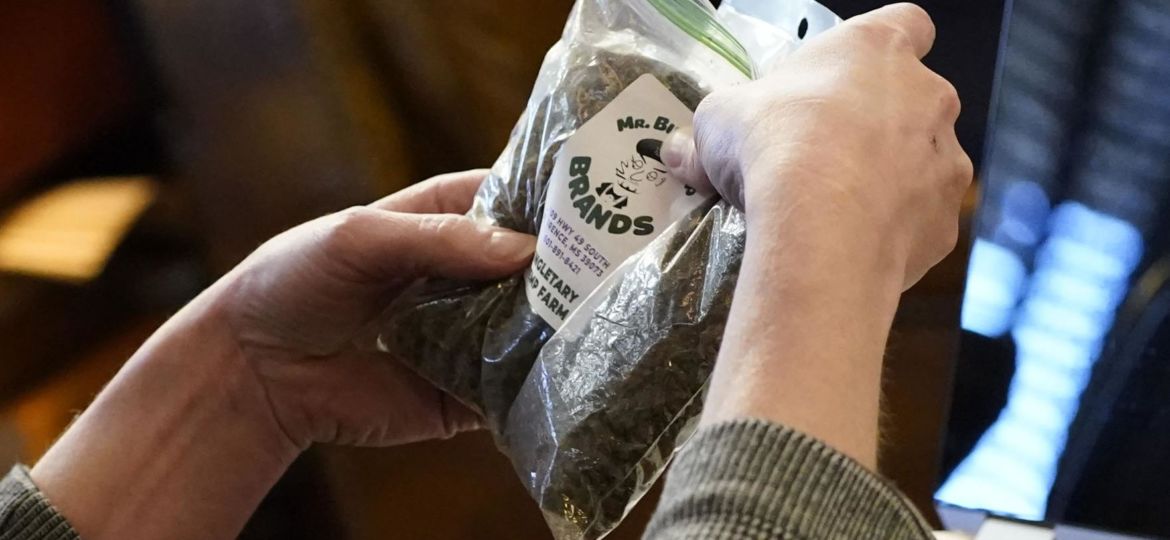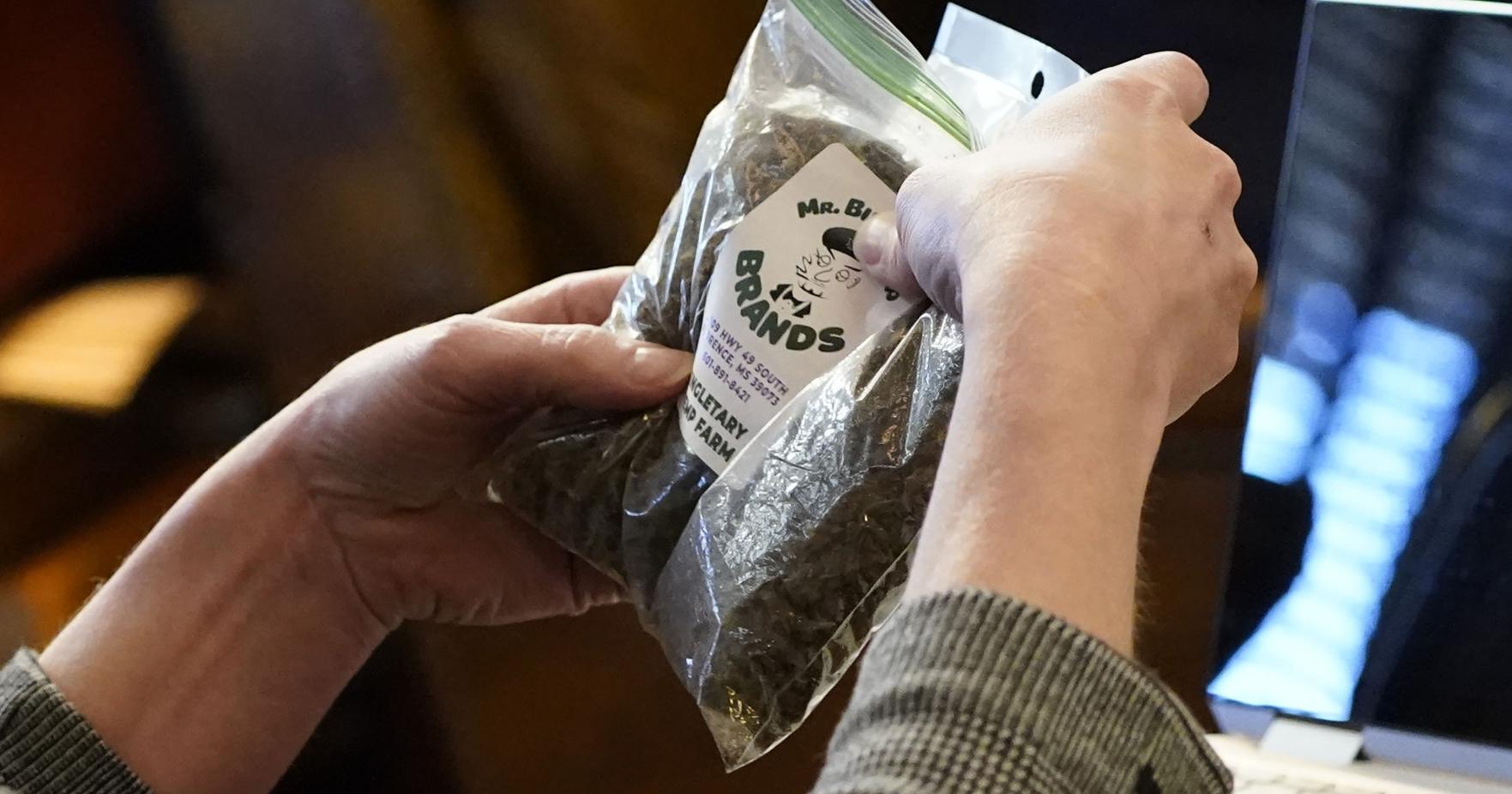

Mississippi’s medical marijuana businesses may take off like a high-powered rocket by the end of the year, but unless the state’s banks put out a welcome mat for them, the new industry will be generating tens of millions of U.S. dollars with nowhere to put them.
The reason for the soon-to-be homeless currency: Refusals by lawmakers in Washington and Jackson to legally allow Mississippi banks to accept deposits from state-licensed medical marijuana businesses. Marijuana’s longtime federal classification as a drug prohibited under the Controlled Substances Act is a main obstacle to statutory changes.
A change in congressional direction could convince the Mississippi Legislature to let state-chartered banks and credit unions accept cannabis-business deposits, a move lawmakers rejected in killing a 2021 bill to allow financial services to the medical marijuana industry.
That option is still alive in the proposed federal Secure and Fair Enforcement (SAFE) Banking Act, passed by the U.S. House in April 2021 with strong bipartisan support. The measure is in the Senate, still awaiting consideration by the Committee on Banking, Housing and Urban Affairs.
The stalled action could mean Mississippi’s medical cannabis businesses will go live by year’s end having to decide whether to stash their cash somewhere in the state or send it out in armored trucks to out of state banks that will accept it.
“Get a big vault,” suggested Connor Reeves, a Jackson medical cannabis advocate and attorney who is advising clients on venturing into Mississippi’s newest industry.
It is true that monetary success in the new pot ventures is within reach, said Slates Veazey, a Jackson attorney and member of the medical cannabis group at the Bradley law firm. But navigating the banking system will be a challenge, he cautioned.
“I think people see a lot of up-side here,” Veazey said. “But there is certainly some risk” in the financial services category.
Banks are caught in the middle. The relatively small number of banks and credit unions around the country that serve state-licensed marijuana businesses risk violating parts of the Bank Secrecy Act forbidding the use of funds that come from illegal activities. Beyond that, financial institutions must navigate a labyrinth of anti-money laundering laws, The National Law Review reported in a September 2021 update on the pending SAFE Banking Act.
Banks also subject themselves to various recordkeeping and reporting requirements, including alerting the Financial Crimes Enforcement Network whenever they suspect a case of money laundering.
Second-class status will handicap Mississippi’s fledgling cannabis sector beyond depriving participating businesses of a place to deposit their money, The National Law Review’s 2021 article reported.
“… bereft of proper banking and financial services, cannabis-touching companies are restricted in their ability to raise capital, retain favorable loan arrangements, protect their earnings, and generally grow their businesses.”
To continue to flourish, these companies have a simple need: “A stamp of approval on the federal level for cannabis-related banking activities,” The Law Review said.
Reeves, the Jackson attorney, expects Congress will soon give a greenlight to financial services in the 47 states that have legal marijuana use in some form.
“I bet that it is coming. I bet that it is coming soon,” Reeves said.
Authors of The National Law Review article agree, based on their assessment of Senate support. “Many within the Senate are optimistic that the bill will pass, especially with overwhelming support from organizations and businesses, including the American Bankers Association, the American Financial Services Association, and the Credit Union National Association. The time is ripe for cannabis banking reform and one hopes the nation’s legislators see that.”
In Mississippi, some banks are expected to take deposits from medical marijuana companies, said Gordon Fellows, president and CEO of the Mississippi Bankers Association, in an email.
But until Congress gives financial institutions safe harbor, the risks are high, Fellows said. “Each bank is going to have to make individual decisions about their institution’s risk tolerance and determine if they are willing to provide services to this new industry…”
Banks tend not to like testing their risk tolerance, according to Fellows. He noted Washington State has had legal recreational marijuana for nearly a decade but only six or seven banks serve the industry there.
“So, there are a lot of federal risks, even in states where the law is well established,” Fellows said.
The Mississippi Bankers Association expects that banks that do work with the medical cannabis industry won’t be extending loans, choosing to limit the relationship to taking deposits. “Deposit services will be challenging, and lending will be even more challenging,” he said.
Loans are not out of the question, but the collateral extended will be key, according to Fellows. “I don’t think many banks will be interested in making loans secured by marijuana plants or processed cannabis,” he said.
Meanwhile, Mississippi’s credit unions will likely keep a distance from the new cannabis business sector, according to Charles Elliott, president and CEO of the Mississippi Credit Union Association.
Elliott cited the failure of Mississippi’s 2021 banking bill, saying, “I do not expect credit unions will participate in these businesses.”
He expects, though, that Mississippi credit unions will let customers use their credit union debit cards at medical marijuana dispensaries.
Another option is likely to come from leading U.S. legal cannabis payments provider CanPay. Shortly before the state’s voters approved the ballot initiative in November 2020, CanPay CEO Dustin Eide assured in an interview with The Mississippi Business Journal that his Colorado-based company will offer its services to Mississippi marijuana patients through its mobile application.
Eide’s company will charge dispensaries an interchange fee on each transaction. CanPay charged a fee of about 2 percent at the time of Elder’s fall 2020 interview.

